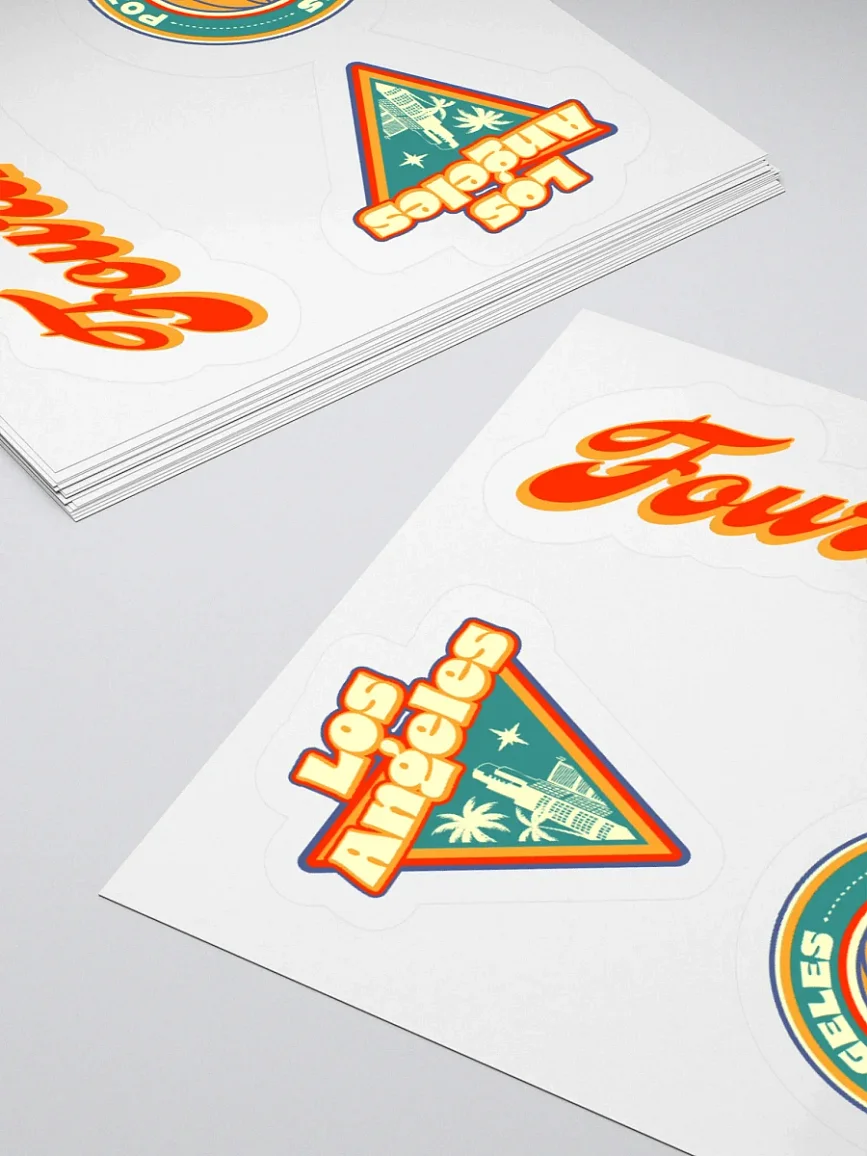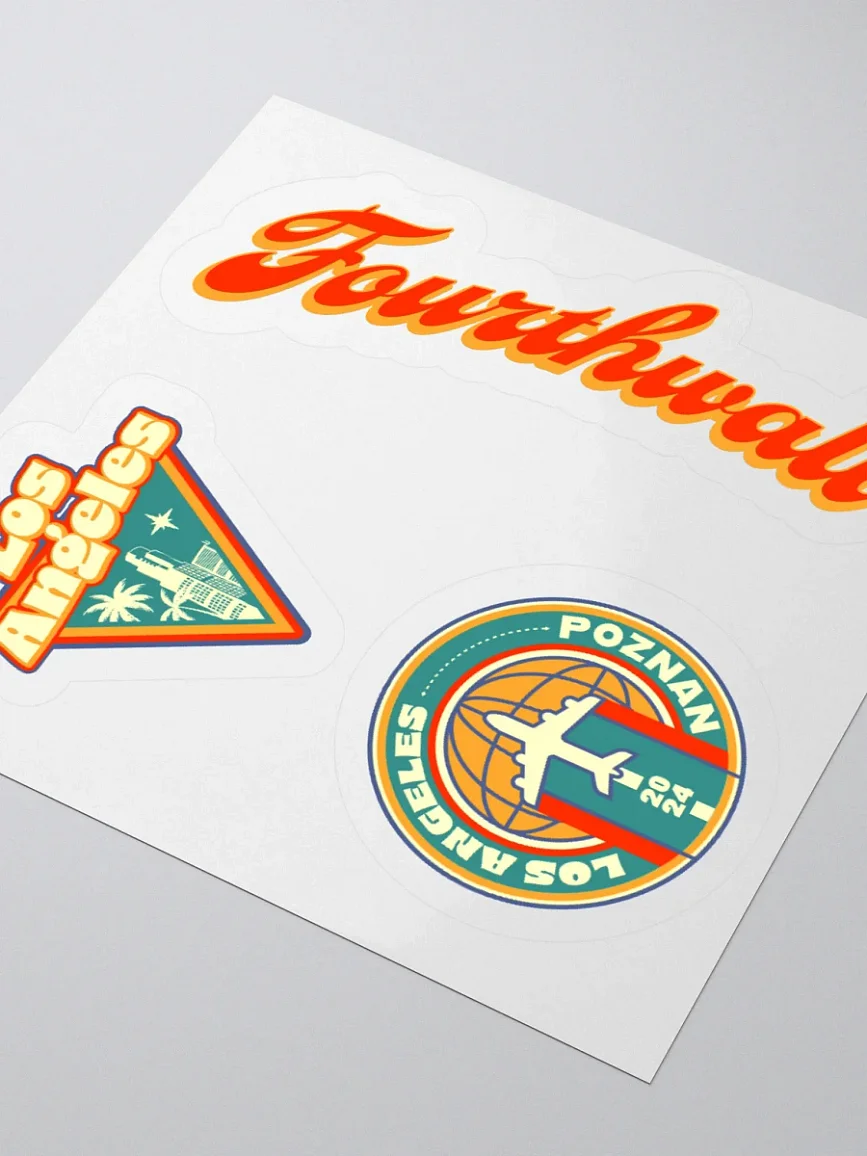How to Build Your Brand Identity as a Creator in 2025

In an era where every brand is leaning on content to grow, creators are the new brands. Shaping a successful personal brand depends significantly on your thoughtfully planned brand identity.
As a creator, your identity goes beyond just your username or logo; it encompasses the visual aspects that make you uniquely you. It's what sets you apart from other creators, builds credibility with your community, and conveys your unique voice and purpose. Traditional businesses use brand identity to help market products, and creators use it to market content. This article will explore all the essential aspects of creating and implementing a brand identity.
What is Brand Identity?
Brand identity is the fusion of visual elements that make your personal brand unique and relatable to your followers. These encompass your logo, typography, standardized color palette, and imagery. Combined, these visuals create an identity that not only differentiates you from other creators but also helps your audience connect with you across platforms.
What Should A Creator's Brand Identity Include?
As a creator, your brand identity is crafted from various visual elements that together create a unique image that your audience loves. Here's what you need to consider:
- Brand Logo
- Typography and typeface
- Standardized color palette
- Imagery, photography, graphics, illustrations, icons, symbols, patterns, and textures
By intentionally selecting these visuals, you're building an exclusive and memorable image that resonates with your target audience.
Key Characteristics Of A Strong Creator's Brand Identity
A strong brand personality and identity is more than a flashy logo or an appealing color scheme. It voices your values, character, and uniqueness. Here's what your brand identity should include:
- Consistent: Consistency across all channels, from your website to social media and marketing materials, strengthens your brand. It helps in building a reliable image and ensures that your audience receives the same experience, no matter where they interact with your brand.
- Reflects Brand Values: Your branding should be an authentic representation of your values and mission as a creator. It's not just about aesthetics; it should echo what you stand for, resonate with your target audience, and authentically represent your voice and message.
- Memorable: A strong creator's brand identity should leave a lasting impression on the audience. It means crafting an identity that resonates, from logo to messaging, so that it remains in the minds of your followers long after they've engaged with your content.
- Easy to Implement: Simplicity and consistency in fonts, colors, and imagery make your brand more recognizable and easier to replicate across different mediums. The ease of implementation ensures that your brand maintains its integrity no matter where it's displayed, creating a cohesive experience for your audience.
- Unique: Individuality is crucial in a field where everyone is expressing themselves. Brand identity should convey what sets you apart from other creators. Whether it's a distinct voice, style, or perspective, your uniqueness should shine through all aspects of your branding.
Brand Identity Examples
Brand identity is pervasive across various fields. Here, we draw parallels between "business branding" and "creator branding." Both market products – businesses offer goods, and creators present content. Some examples include:
- Apple: Apple's logo, with its simplistic design, is one of the most recognizable logos in the world. It embodies the brand's core values of simplicity, innovation, and modernism through its product design, marketing, and advertising.

- Nike: Nike's famous "swoosh" logo design and its "Just Do It" tagline embody the brand's values of athleticism and determination. The brand's overall messaging augments the visual identity, which focuses on empowerment, inspiration, and achievement.
.webp)
- MrBeast: Known for his over-the-top stunts and philanthropy, YouTuber MrBeast has built a brand identity that reflects generosity, fun, and excitement. His recognizable thumbnail images, logo design, consistent color scheme, and engaging content all play into his brand's identity, making him stand out among creators. His branding doesn't just rely on visuals; it's the actions, the thrilling challenges, and massive giveaways that truly define his brand.

- Emma Chamberlain: Chamberlain Coffee is an extension of Emma Chamberlain's relatable, unfiltered brand. With its minimalist and colorful packaging with specific typeface, the coffee brand captures her unique blend of laid-back chic and authenticity, setting it apart in a crowded market. Her direct and humorous social media marketing mirrors her personal brand, making the coffee line instantly recognizable to her fans.
.webp)
- Logan Paul x KSI: A part of Logan Paul and KSI's diverse brand portfolio, Prime Energy embodies the YouTuber's high-octane lifestyle and daring personality. With its sleek design and monochromatic color scheme, the energy drink resonates with a target audience that appreciates the edgy and modern vibe, mirroring Logan and KSI's own brand identity.
.webp)
Why is Brand Identity Important, and Why Do You Need One?
Brand identity isn't just for big corporations; it's pivotal for creators too. Here’s what it will do for your brand:
- Differentiation: A unique brand identity sets you apart from other creators. It showcases your individual style and voice, helping you to stand out in a crowded space. This distinctiveness builds a connection with your audience and allows you to carve out a niche for yourself.
- Credibility: Building a strong and consistent brand identity shows professionalism and authenticity. It instills confidence and trust in your community, making it more likely that your audience will engage with and support your content.
- First Impression: The visual elements of your content are often the first things people notice. A well-crafted brand identity creates a positive first impression that reflects your personality, values, and the essence of your brand.
- Purpose: Your brand identity should convey your goals and unique positioning. It's not just about looking good; it's about creating a cohesive narrative that resonates with your mission, values, and the specific needs of your audience.
- Brand Recognition: Consistency in visuals, messaging, and overall experience fosters brand recognition. It ensures that your audience can easily identify and recall your brand, leading to a lasting connection and loyalty.
8 Steps to Create A Brand Identity
Here are essential steps for your brand strategy to sculpt an effective brand identity for creators:
- Research Your Audience: Leverage your social media to engage with your audience and understand their needs and wants. Knowing your audience’s preferences can guide your content creation as well as brand positioning. Chat with your supporters to see what they love about your content and what they’d like to see.
- Know Your Niche: Recognize what makes you unique among other creators and build your positioning statement. Identifying and highlighting your special attributes will help you stand out in your community and reach your target audience.
- Determine Your Brand Voice and Messaging: Define how you want to be seen by your audience. Crafting a consistent voice and message ensures that your audience perceives you in the way you intend.
- Standardize Your Color Palette: Unify the colors used in all visual materials to ensure they align with your brand's identity. This consistency in color not only adds visual appeal but also reinforces your brand's image and recognition.
- Create Your Logo and Design Your Brand Elements: Think about your standardized color palette, typography, and imagery that will resonate with your audience. A well-designed logo and cohesive visuals become the face of your brand. This will likely be your business name in a specific typeface, or a graphic that you’ve created.
- Create Your Brand Guidelines: Ensure consistency across all platforms by documenting your brand's visual and stylistic guidelines. Make your own style guide for future reference and include all other brand guidelines. This can include specifics on colors, fonts, and tone, making it easier for you to maintain a unified appearance. Every brand should have a style guide, here is an example from Fourthwall.
- Test And Refine Your Brand Identity: Continuously tweak your brand identity to resonate with your audience. This iterative process ensures that your brand remains aligned with your audience's evolving preferences and expectations.
- Implement Your Brand Identity: Practice consistency across various channels and mediums. Uniformity in presentation helps build recognition and fosters trust among your followers.
Applying Your New Brand Identity
Consistency is pivotal when applying your brand identity. It's your responsibility to direct your audience correctly. By following these tailored steps, your identity will be consistently and effectively reflected across platforms and channels. At Fourthwall, we have numerous creators who have successfully established their brand identities by leveraging our platform. We offer a variety of website customization options, which you can use to implement your typography and color palette. Consider adding your logo or business name to the top of your site, and use it as your favicon. Choose from the Fourthwall product catalog and showcase your brand identity through custom merchandise.
Wrapping Up
In wrapping up, sculpting a powerful brand identity is fundamental for creators wanting to make their mark. By employing the steps and key characteristics outlined in this article, you can forge a brand that truly embodies your persona and resonates with your community.
Start using Fourthwall, where we understand that creators need more than a platform; they need a launchpad tailored to their vision. We offer everything you need to nurture an engaging online presence and foster a deeper connection with your audience.
















